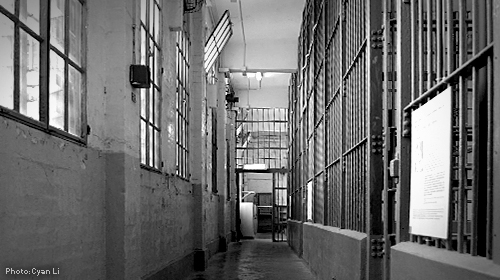A Living Nightmare in America's Paradise


Imagine being charged with a crime, going to trial, being found not guilty by reason of insanity, but remaining behind bars for years. You are denied access to a psychiatrist to treat your serious mental illness; you grow more acutely ill; and you daily face the threat of violence at the hands of other prisoners.
According to a recent report by a federal court appointed psychiatrist, this nightmare is a reality for at least two men at the Criminal Justice Complex, the jail located in St. Thomas, Virgin Islands. Dr. Kathryn Burns, the chief psychiatrist for the Ohio Department of Corrections, discovered that these men found not guilty by reason of insanity (NGRI) remained locked up at the CJC for years after their criminal verdicts.
And that's against the law.
Federal court orders have been in place for 20 years, requiring the Virgin Islands Bureau of Corrections to hospitalize acutely and chronically mentally ill CJC prisoners. In fact, Dr. Burns concluded that the government had failed to comply with every mental health provision, over 60 in all, of a settlement agreement it signed a year ago. The settlement agreement includes provisions requiring the government to hospitalize all NGRI patients and those who are acutely ill.
The BOC has flouted these orders and has been found in contempt of court multiple times. But, as Dr. Burns found, these contempt orders have had little to no effect. Despite the fact that these men have been hospitalized and then discharged, they find themselves languishing at the jail without adequate care or any apparent legal basis for continued imprisonment.
Dr. Burns stated she knew of no other correctional system that keeps NGRI patients incarcerated like they are at CJC. In other systems they are hospitalized, so they can receive a level of treatment that simply cannot get at a jail. In St. Thomas, these men remain prisoners, housed in a unit plagued with prisoner-on-prisoner assaults, as overworked and undertrained staff members are overwhelmed by a toxic mix of predatory and acutely ill prisoners.
Mistakes and abuse naturally result.
Dangerous medication disbursement practices are commonplace at CJC, such as prescribing outdated medications and then failing to monitor for side effects. Other issues include the use of physical force and employing steel restraints with extended lockdowns on the mentally ill instead of treatment. Dr. Burns concluded that the overworked detention staff has not received critical training, contributing to dangerous incidents where staff force-fed mentally ill prisoners medications. Dr. Burns found this practice placed patients at risk of asphyxiation and violates all accepted medical standards.
There is, however, an easy solution to the unsafe and abusive conditions at the CJC. If the Virgin Islands government adds beds to the Eldra Shulterbrandt facility, the territory's long-term mental health facility, these men and women will receive the treatment they need. This will result in a smaller and safer jail for both prisoners and staff. It will also end a sad chapter of warehousing men who face no charges, who are not guilty in the eyes of the law, and whose only "crime" is that they are mentally ill.
Learn more about prisons and other civil liberty issues: Sign up for breaking news alerts,follow us on Twitter, and like us on Facebook.



